This initiative marks a pivotal moment in acknowledging and honouring the history of the Roma and Sinti communities, shedding light on a grim chapter of the past while fostering a strong message of reconciliation and future hope.
The Holocaust memorial will be an important tool to share knowledge and understanding about Roma and Sinti history in Bohemia and their current situation in the Czech Republic. I am grateful that the EEA and Norway Grants had the opportunity to support this landmark initiative. Maria Varteressian - Deputy Minister, Norwegian Ministry of Foreign Affairs
A journey through history
The Lety u Písku Memorial, officially opening in May 2024, emerges as a profound response to a long-standing call for recognition and respect. Situated on the grounds of a tragic "Gypsy Camp" operational from 1942-1943, this site once witnessed the suffering of countless Romani and Sinti families under inhumane conditions, many of whom were later deported to Auschwitz. The subsequent construction of an industrial pig farm on this site in the 1970s, operational until 2018, served as a painful reminder of the disregard for the victims' memories. The state's decision to demolish the farm and erect a memorial, managed by the Museum of Romani Culture and supported by the EEA and Norway Grants, signifies a crucial step toward healing and remembrance.

Press conference at the Lety Memorial
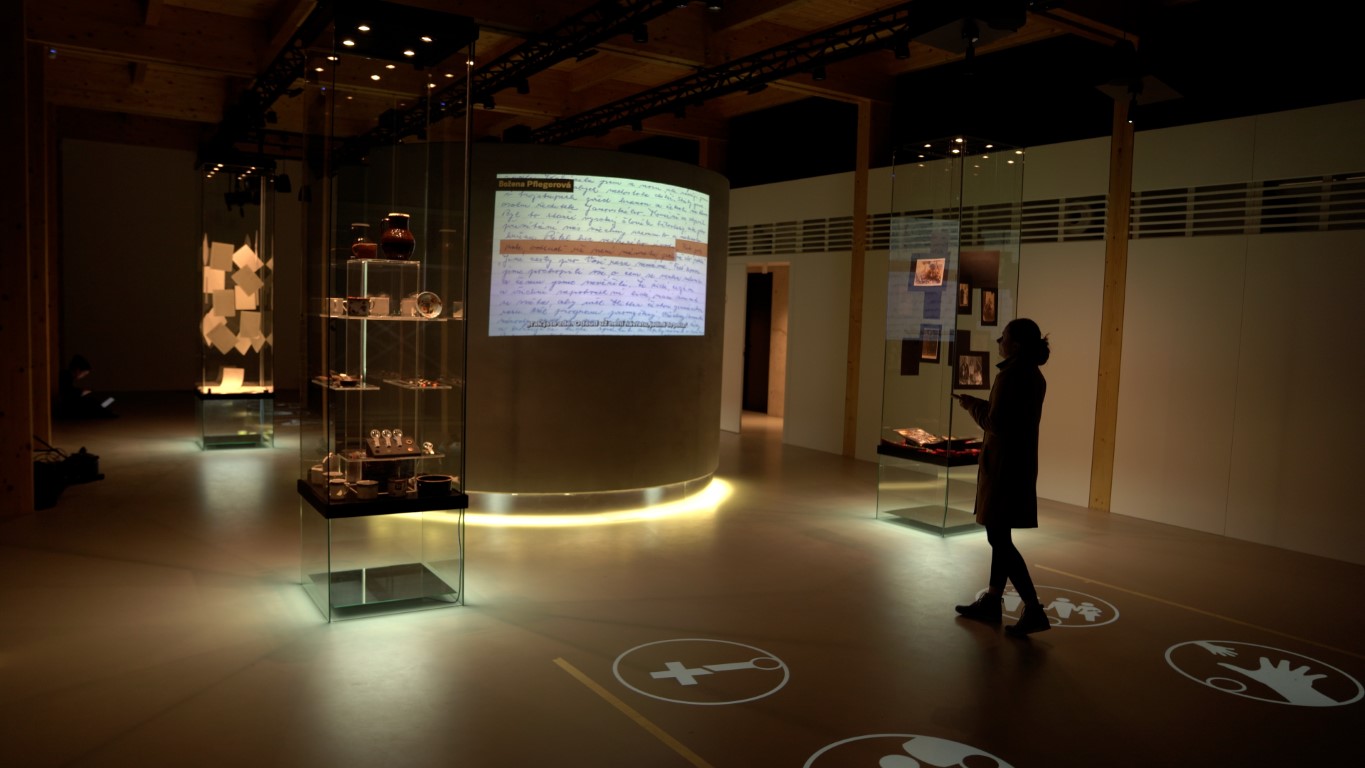
Exhibition at the Lety Memorial
This poignant new space is designed not only to honour the suffering endured by the Roma and Sinti communities but also to foster an educational journey through the authentic recollections of eyewitnesses, preserved in the "Trail of Memory." The project culminates in a ceremonial opening on April 23rd, attended by descendants of survivors, donors, and key figures from the cultural and political spheres.
This place will remind us of the crimes againts humanity committed here. It will remind us that it is necessary to protect human values, always, everywhere and without exception. Petr Pavel - President of the Czech Republic
The museum, through its efforts and with the support of the EEA and Norway Grants, alongside other contributors like the German Embassy and partners such as the Norwegian Falstad Centre, is bringing to light the stories of over 1,300 Roma and Sinti who were once imprisoned at the site. Their lives and the tragedy that befell them will be honoured through both the indoor and outdoor exhibitions at the Memorial.
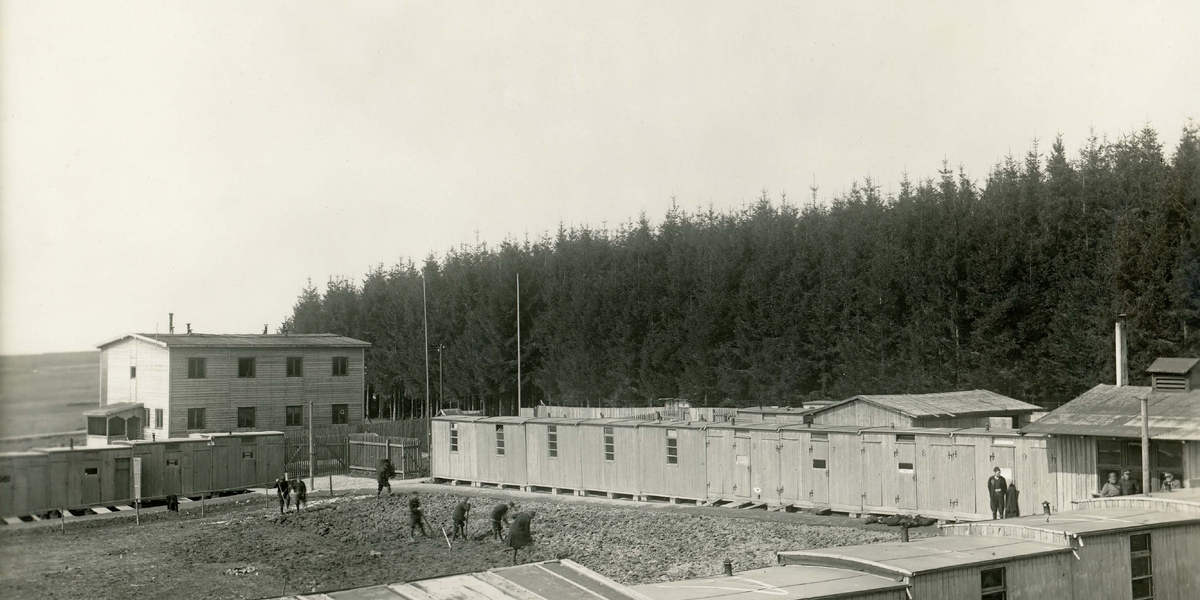
Picture of the camp – source: https://www.rommuz.cz/cs/lety-u-pisku/fotogalerie/
The Lety u Písku Memorial invites us to reflect on the past and commit to a future where discrimination and hatred have no place. Set to open its doors to the public in May, it symbolizes a significant stride in honouring the memories of the victims and educating future generations about the atrocities committed during World War II. "The Holocaust Memorial will be an important tool to share knowledge and understanding about Roma and Sinti history in Bohemia and their current situation in the Czech Republic. I am grateful that the EEA and Norway Grants had the opportunity to support this landmark initiative," says Jana Horváthová, Director of the Museum of Romani Culture.
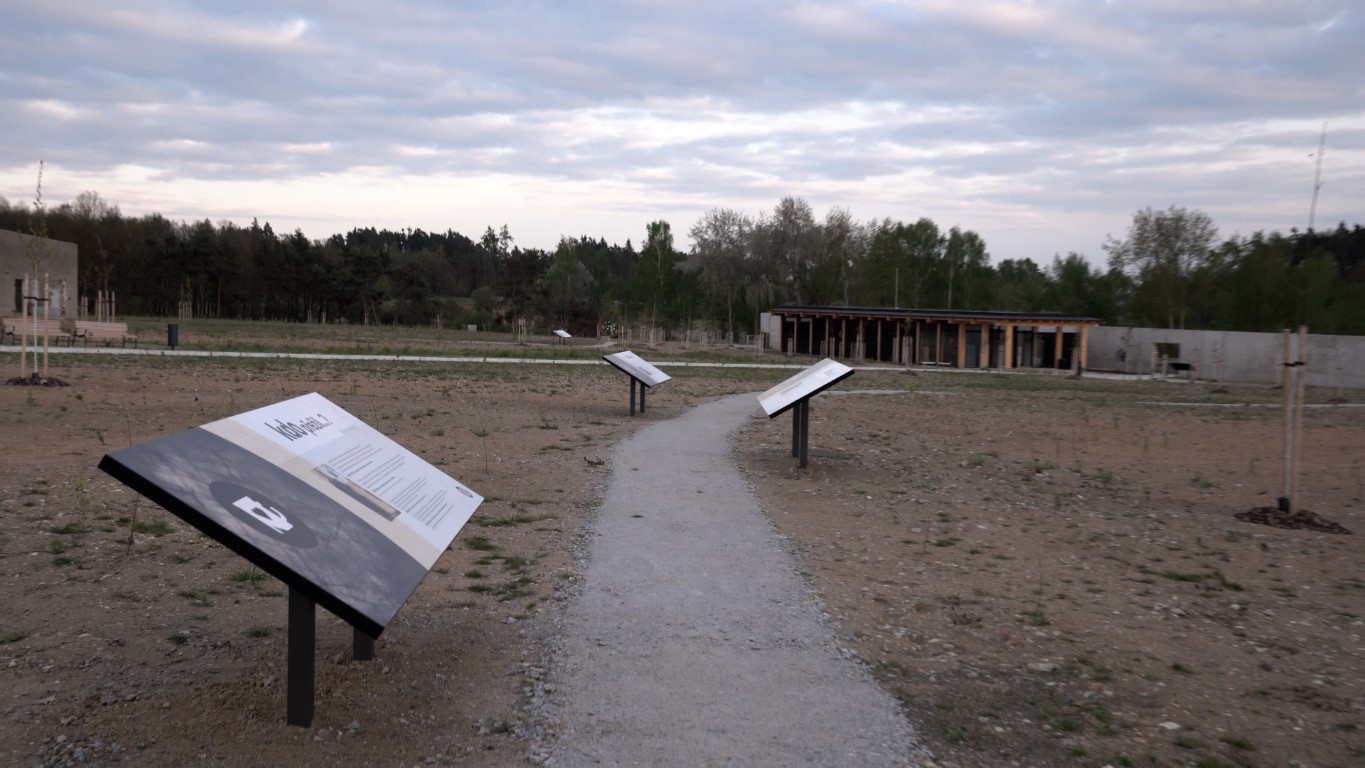
Exhibition at the Lety Memorial
Cooperation at the heart of the project
The Memorial is supported through the Czech Culture Programme which focuses on revitalizing the country’s cultural heritage and stimulating cultural and creative ventures that promote regional development and social inclusion. The programme places a strong emphasis on the preservation and innovative use of cultural heritage, alongside nurturing contemporary art across various disciplines.
Working with the heritage of minorities was a priority all along in the Czech culture program and this is the main project where we work with Roma heritage - which is of course very important. Vegard Berggård - Senior Advisor at Riksantikvaren
Moreover, the programme uniquely addresses societal challenges, with a special focus on helping the integration of minorities such as the Roma community, through combating racism and promoting inclusion through culture. This initiative not only aims to enrich the Czech cultural landscape but also to foster a more inclusive and diverse society.

The Lety project team. Source: Falstadsenteret https://falstadsenteret.no/en/hva-skjer/eng-lety-u-pisku-memorial-to-the-holocaust-of-the-roma-and-sinti
In 2022, representatives from the Museum of Romani Culture visited the Falstad center in Norway, fostering collaboration for the Lety u Písku Holocaust Memorial project. This exchange focused on the development of the memorial's exhibition and educational programs, benefiting from insights into Falstad's educational approaches and AI technology used to visualize the historical site.
This is an important project because building and running memorials is important. Memorials are important for commemorating, for education, for therapy - but also as a means for connecting the past and the present. Øyvind Skogvold - Director of the Falstad Center in Norway
The visit underscored the value of international partnerships in enhancing memorial projects. This initiative is supported by Iceland, Liechtenstein, and Norway through the EEA and Norway Grants, highlighting a collective commitment to historical preservation and education.
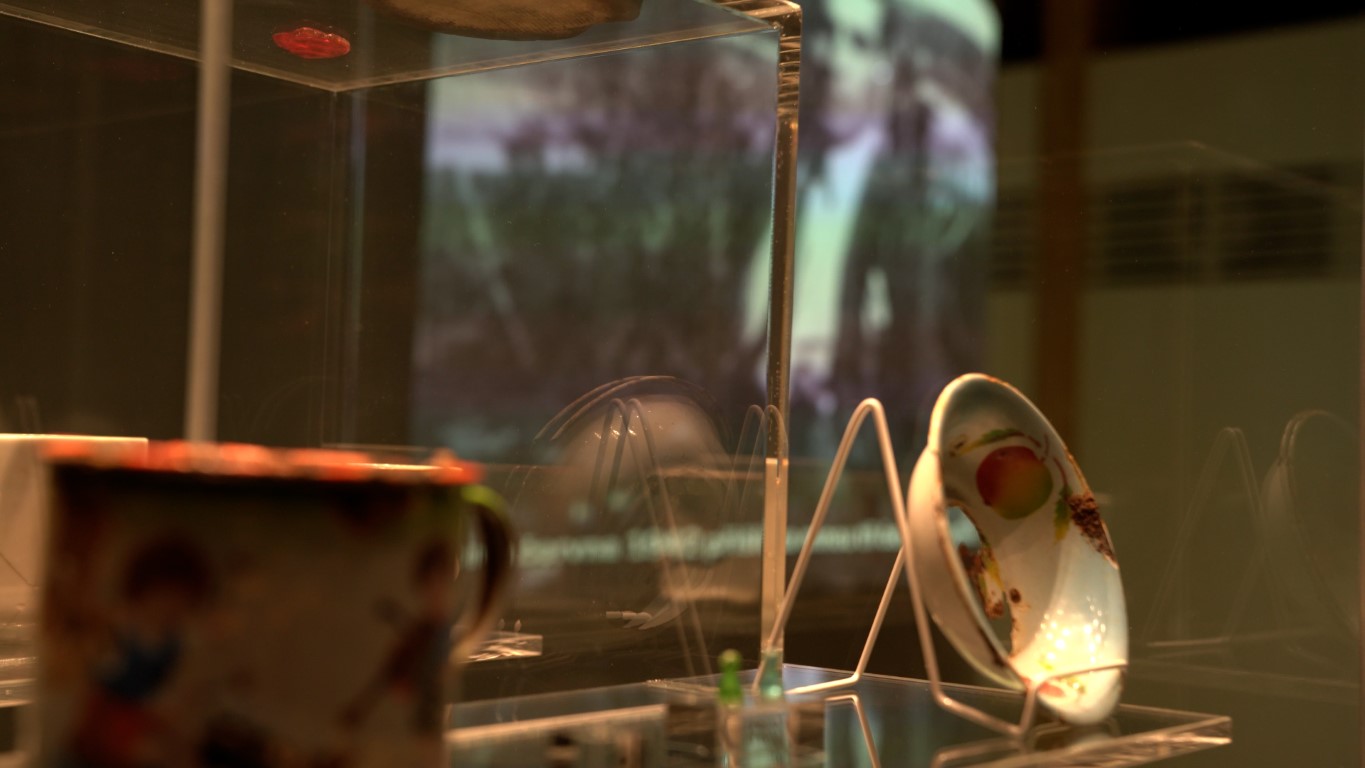
Exhibition at the Lety Memorial
The forest as a symbol
In a significant act of remembrance and acknowledgment, politicians and community members came together last winter to plant trees at the site, a gesture that carries the weight of memory and the promise of growth. The majority of these saplings were generously donated by the Orlík Estate of Jan and Karel Schwarzenberg, honouring the late Mr. Karel Schwarzenberg's enduring support for the memorial's construction.
Jana Horváthová, director of the Museum of Romani Culture, emphasized the importance of this forest as a living monument to the lost Roma communities. She envisioned the forest not only as a symbol of those who were lost but also as a way of acknowledging a chapter of history that has been too long overlooked.
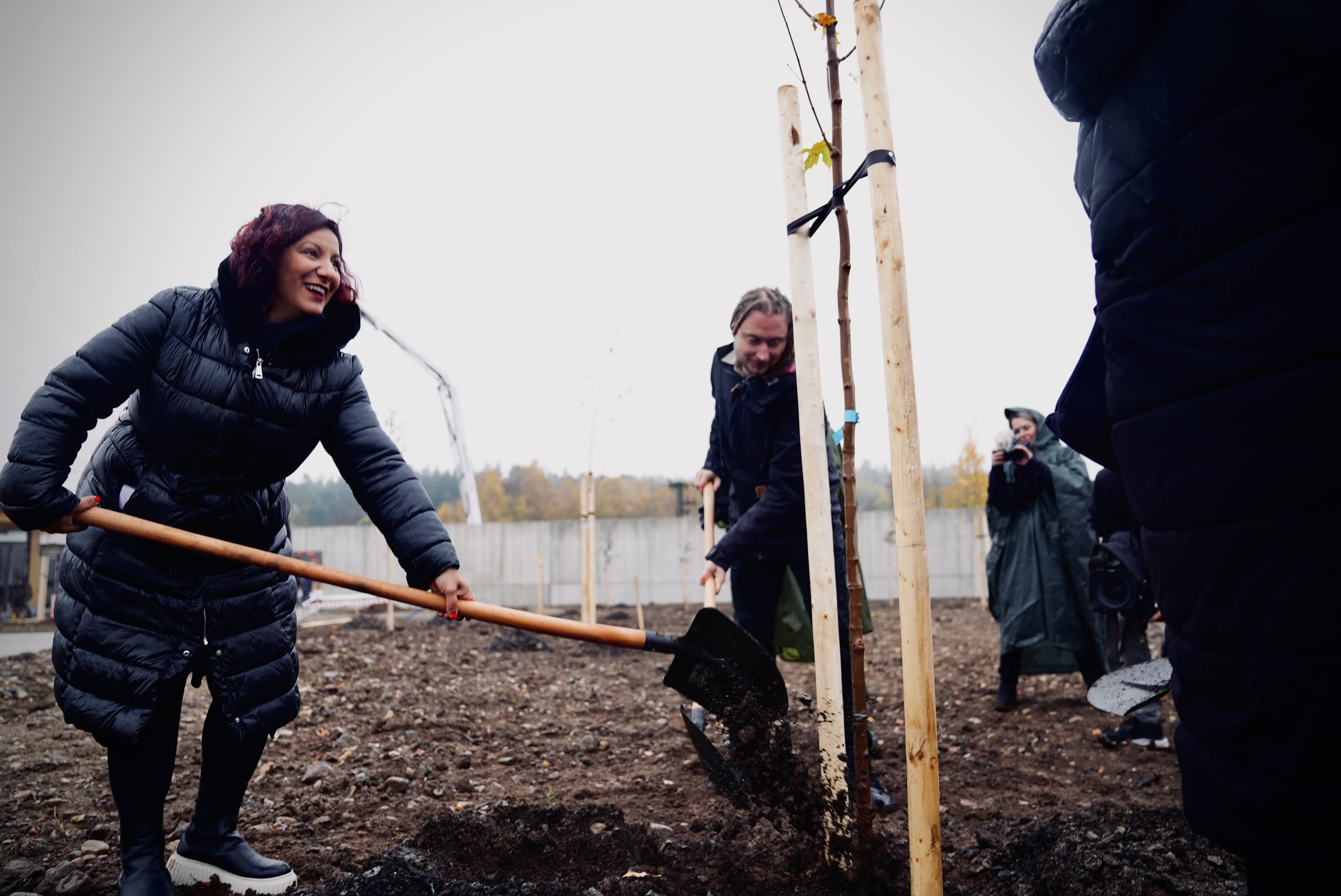
Government Commissioner for Roma Minority Affairs Lucie Fuková (left) during the symbolic planting of trees in Lety u Písku in november 2023 (PHOTO Lukáš Cirok source: https://romea.cz/en/czech-republic/lety-memorial-to-the-holocaust-of-the-roma-and-sinti-to-open-in-february-2024-forest-there-will-symbolize-the-human-toll)
This transformative project, supported by Iceland, Liechtenstein, Norway, underscores the collaborative spirit of the EEA and Norway Grants. Their contribution not only honours the memory of the Holocaust victims but also educates future generations about the importance of human rights and mutual respect.
As we look forward to the opening of this significant memorial, let us join in commemorating the lives lost and celebrating the enduring strength of the Roma and Sinti communities.
For more information on the Lety u Písku Memorial and other initiatives by the Museum of Romani Culture, visit rommuz.cz/en and follow their inspiring journey on social media.

